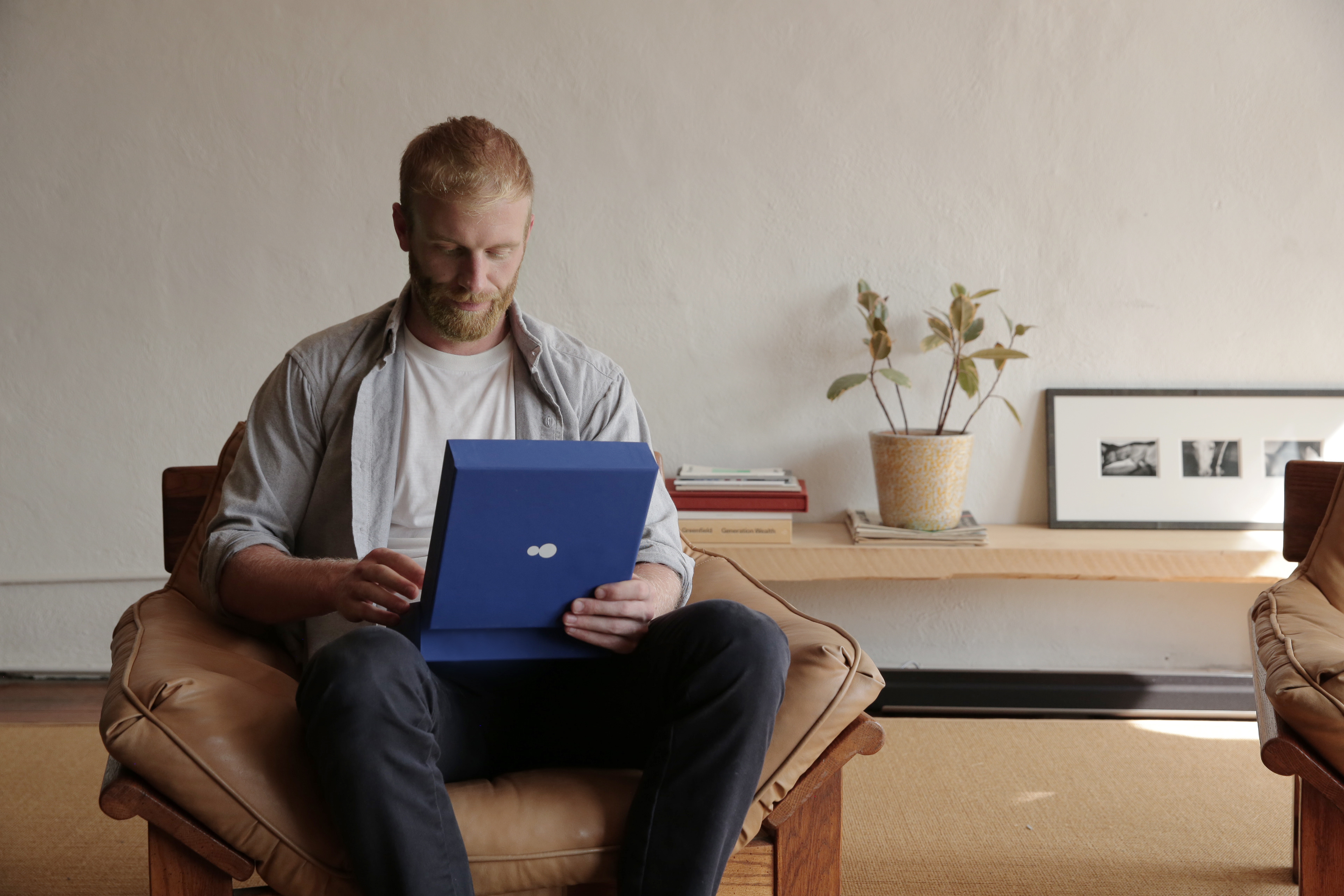The founders of Dadi — pronounced daddy — think men are in need of a wake-up call.
“Men [have] a biological clock just like women, which is something that people don’t talk about,” Dadi co-founder and chief executive officer Tom Smith told TechCrunch. “Infertility isn’t a women’s issue; It’s both a men’s and women’s issue.”
Smith believes Dadi, the provider of a temperature-controlled at-home fertility test and sperm collection kit, will encourage men to contribute to family planning conversations and become more aware of their reproductive health. The startup is officially launching its kit and long-term sperm storage service today with nearly $2 million in venture capital funding from London-based seed fund firstminute capital and New York-based Third Kind Venture Capital.
“Our mission is to normalize the conversation around male fertility and reproductive health, and empower men with knowledge of fertility so they can have that conversation with their family,” Smith said.

Here’s how it works: Dadi customers order a kit online, masturbate and collect their sperm within the comfort of their own homes, drop it off with FedEx and wait for a full fertility report, which comes with a microscopic video of the each man’s actual sperm. To survive the trip to the startup’s laboratory — the New England Cryogenic Center — the Dadi-designed container injects preservatives, which are nested in the lid of the cup, into the sperm sample.
Headquartered in Brooklyn, Dadi’s service is FDA-licensed in all 50 states and costs a total of $198, including a test and one-year of sperm storage.
Dadi’s co-founding team includes Mackey Saturday, a graphic designer who created Instagram’s logo, and Gordon von Steiner, a former creative director in the fashion industry. The team has prioritized design and messaging of the product, in addition to security, privacy and high medical standards.
“We aren’t trying to sell hair pills, we are actually interacting with customers at a very vulnerable part of their life,” Smith said. “We feel like our value set, approach and thoughtfulness really differentiate us from anyone else in the space.”
One in 6 U.S. couples struggles with fertility, with male factor infertility a cause of 30 percent of those cases, per ReproductiveFacts.org. Startups want to improve these statistics, targeting an industry that’s trapped in the 1980s.
“We are in the direct-to-consumer era,” Smith said. “We reached peak app a couple years ago and I think a lot of the innovation that’s happening in the space comes down to individualized services.”
Dadi joins a cadre of privately-funded male fertility or men’s health businesses. Hims, the provider of direct-to-consumer erectile dysfunction (ED) and hair loss medication, leads the pact. The 2-year-old business entered the unicorn club last week with a $100 million investment. Ro, formerly known only as Roman, sells ED medication online, too, and has raised a total of $91 million. Legacy, which freezes men’s sperm, recently won TechCrunch’s very own Startup Battlefield competition in Berlin. And Manual, an educational portal and treatment platform for men’s issues, raised a £5 million seed round earlier this month from Felix Capital, Cherry Ventures and Cassius Capital.
It’s clear that VCs have woken up to the opportunity to disrupt fertility with tech-enabled solutions to age-old issues and now, entrepreneurs passionate about helping men broach sensitive topics, from infertility to erectile dysfunction to hair loss and more, are able to gain ground.
Here’s to more funding for women’s health businesses, which are in dire need of innovation, too.
from Startups – TechCrunch https://tcrn.ch/2CSMc3Q
Comments
Post a Comment